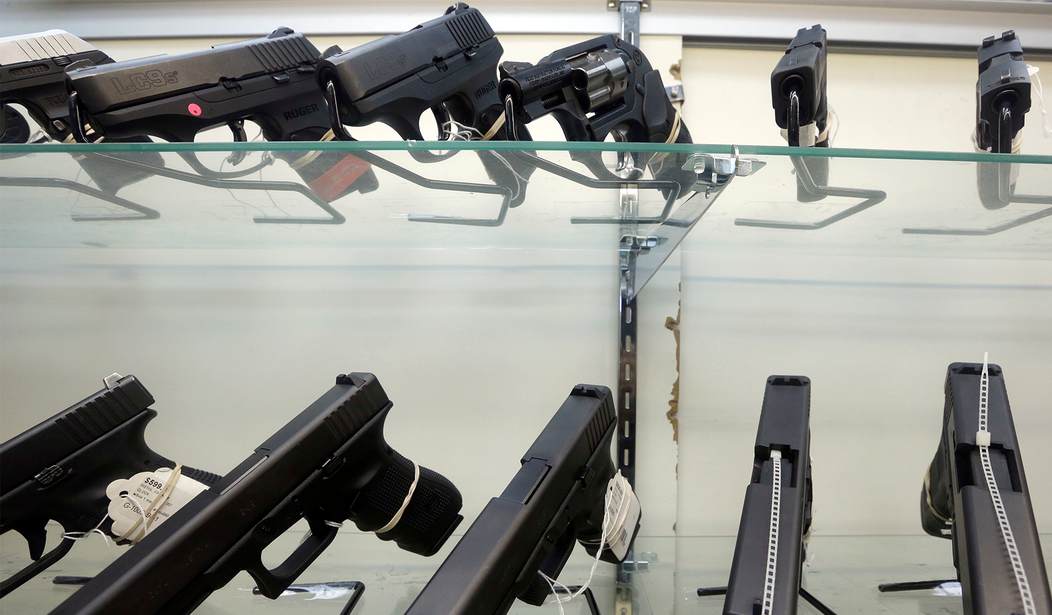How many times have we seen a poll roll out finding that gun control is popular with the people? We’ve seen it a thousand times at least, and I don’t really even know if that’s an exaggeration at this point. It’s pretty common.
Yet we also see cases like in Maine where despite polling saying the measure was popular, it was soundly defeated by the voters. That’s because a two-second-long question doesn’t exactly capture the nuance of a whole bill.
It would seem to suggest that gun control’s popularity isn’t quite what it’s billed as.
However, writing over at The Federalist, John Lott argues that the purpose of those surveys isn’t to discover where the public stands. It’s to shape public opinion itself.
Gun control advocates often point to polls showing overwhelming support for gun control. For instance, in May, a headline for an NPR/PBS Newshour survey proclaimed: “Most Americans say curbing gun violence is more important than gun rights.”
But is that really the choice Americans face on gun control?
The survey asked, “Do you think it is more important to control gun violence or to protect gun rights?” It found that American adults preferred reducing gun violence (60 percent) over protecting gun rights (38 percent). Besides extensive reporting on the poll by NPR and PBS, the survey received massive news coverage in such outlets as USA Today and The Hill, with headlines echoing NPR’s.
The problem is, however, that while the media label gun control proponents as supporting “safety” and wanting to “reduce violence,” people on both sides of the gun control debate advocate for such things. “Gun rights” do not inherently imply increased gun violence. Indeed, such violence can be curbed by protecting the right of people to defend themselves against it.
Lott then goes on to cite concrete examples where polling was conducted asking about the same issues, but reframing the question just a bit.
In every case, people were more likely to favor the pro-gun argument than previously reported. They weren’t overwhelmingly pro-gun in every instance, but even when the gun control argument came out on top, the difference was much narrower than it had been.
Lott continues:
Organizations such as NPR and PBS spend our tax dollars on surveys that paint gun control in the best possible light. But clearly, small changes in the questions dramatically change the polling results. That isn’t just true in this case — it also goes for surveys on specific gun control proposals such as red-flag laws and so-called universal background checks.
Now, for the sake of argument, I suppose it’s possible these are good-faith differences of opinion in how to frame the questions, but I tend to doubt it. Polling is something people understand pretty well, so they know how important it is to ask questions in the correct way.
But if you look at the questions being asked, they’re often pretty vague.
Take universal background checks, for example. “Do you support background checks for gun sales?” seems simple and straightforward, but many will read this as a question about whether you support the status quo. “Do you support background checks on all gun transfers, including those between family members?” is a very different question and isn’t likely to get the same kind of response.
So it’s difficult for me to accept the idea that these are good-faith differences in framing. No, they’re likely intentional, which means our tax dollars are, to some extent, being used to try and strip us of our rights.
Like Lott said.
Frankly, it’s disgusting, especially since gun control advocates are doing all they can to stigmatize us and push us into the fringes of society. Even mentioning that you’re not giving up your guns in a country song is now cancel-worthy.
What they also want to do is try to show that we’re a smaller percentage of the population than we actually are, all in hopes that being marginalized will force us to change our opinions.
Unfortunately for them, we can see through this nonsense.








Join the conversation as a VIP Member